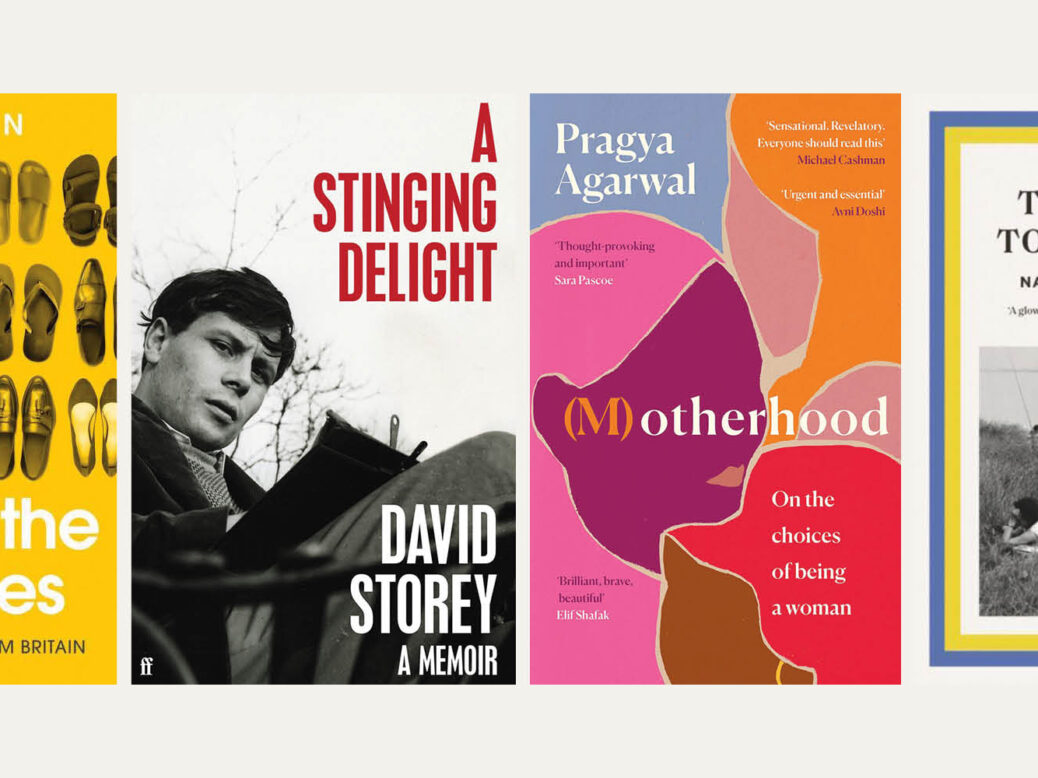
(M)otherhood by Pragya Agarwal
The choice to have a child or not can be fraught with guilt and anxiety – and often it is not a free choice at all, when our options and desires are so profoundly shaped by outside pressures: our cultural environment, our social status, our economic realities, our biology. In this powerful and compelling book, the behavioural scientist Pragya Agarwal uses her personal story to explore the intimate politics of fertility and childbirth and to interrogate how cultural ideals of motherhood are internalised and weaponised.
Agarwal is a precise, elegant writer who seeks answers by embracing complexity: we can never liberate ourselves from the patriarchal structures of motherhood if we do not understand how our reproductive freedom is limited by questions of class, race and gender identity. When Agarwal first fell pregnant, she was a young, ambitious newlywed who felt crushed by the expectations of her traditionally minded family in India. Her pregnancy was hard, and then she almost died giving birth. “We were in this together, and motherhood felt like a war,” she writes of her newborn daughter. “Mothering would be my biggest gesture of defiance.”
By Sophie McBain
Canongate, 384pp, £16.99
The Road to the City by Natalia Ginzburg, translated by Frances Frenaye
The revival of the Italian author Natalia Ginzburg, who died in 1991, continues. The Road to the City, the first of her 11 novels, appeared in fascist Italy in 1942 under the name Alessandra Tornimparte – Jews were banned from publishing books – when she was in her mid-twenties and already a mother of three. It unfolds over 15 chapters, in a mild, frequently lovely first person – the translation, by Frances Frenaye, dates from 1949 – and recounts, against a gently sketched backdrop of sibling stand-offs and village gossip, the will-they-won’t-they relationship between the fidgety teenage narrator Delia and her bookish, somewhat surly cousin Nini. Theirs is a romance star-crossed less on account of the familial relation than of shyness, suspicion and game-playing. Delia dreams of escaping to the nearby “city” – likely Turin – but at what cost, and who will be the one to pay it?
This novel is worth reading for the occasional glimpses of riches that later, in Family Sayings (1963), seemed routine, and it is being reissued along with its more intricate successor, The Dry Heart, a compact, nervy thriller published in 1947.
By Leo Robson
Daunt Books, 99pp, £8.99
Among the Mosques by Ed Husain
Turning up unannounced to Friday prayers across ten UK cities, Ed Husain – a former radical Islamist and co-founder of the counter-extremism think tank Quilliam – attempts to guide the reader into the heart of modern Muslim Britain. Speaking frankly with imams, teachers, congregation members and non-Muslim locals, Husain is disturbed by the “growing separatism” he describes between some British Muslims and their white British neighbours. “What future is there for the separate dwellers of pubs and mosques in Britain?” he asks. Essentially: are they integrating?
Husain gathers much anecdotal evidence through in-depth conversations and colourful “vox pop” encounters. Yet the Orwell Prize-nominated journalist can be clumsy in his quest: he quizzes a baffled eastern European hotel receptionist about the history of Manchester’s Free Trade Hall-turned-Radisson, for example, and asks himself “Where were the Union Jacks?” upon leaving Bradford, the city with England’s third largest Muslim population. Both chatty and challenging, Among the Mosques is as much a manifesto for “a modern, Western Islam” as it is a reporting trip that sometimes inadvertently reveals more about the reporter than his subjects.
By Anoosh Chakelian
Bloomsbury, 352pp, £18.99
A Stinging Delight: A Memoir by David Storey
David Storey, painter, professional rugby league player, playwright and Booker Prize-winning novelist, died in 2017. This memoir, full in equal parts of vividness and pathos, was completed in 2012 but, fearing the consequences of publication for his shaky mental health, he asked his publisher to send the manuscript back. One can see why.
Storey was the exemplar of the northern working-class novelist who came to prominence in the 1960s. His debut novel, This Sporting Life (1960), a reflection of his own time as a rugby player, was turned into a successful film starring Richard Harris and directed by Lindsay Anderson (who would become a long-term collaborator); Saville won the Booker Prize in 1976; his plays premiered at the Royal Court when the theatre was at its most influential. Nevertheless, Storey felt not just an outsider but one haunted by the death, six months before his own birth, of his elder brother. The loss poleaxed his mother and had the knock-on effect of “making me something other than I might have been”. The effects never went away and in the 1980s he spent many months in a psychiatric institution. It is this disjunction, unsparingly related, between worldly success and “an inner world of terror” that gives this memoir its potency.
By Michael Prodger
Faber & Faber, 407pp, £20
[see also: Reviewed in short: New books by Daniel Kahneman, Mitchell Dean, Nadifa Mohamed and Rory Cellan-Jones]
This article appears in the 09 Jun 2021 issue of the New Statesman, The Covid cover-up?






